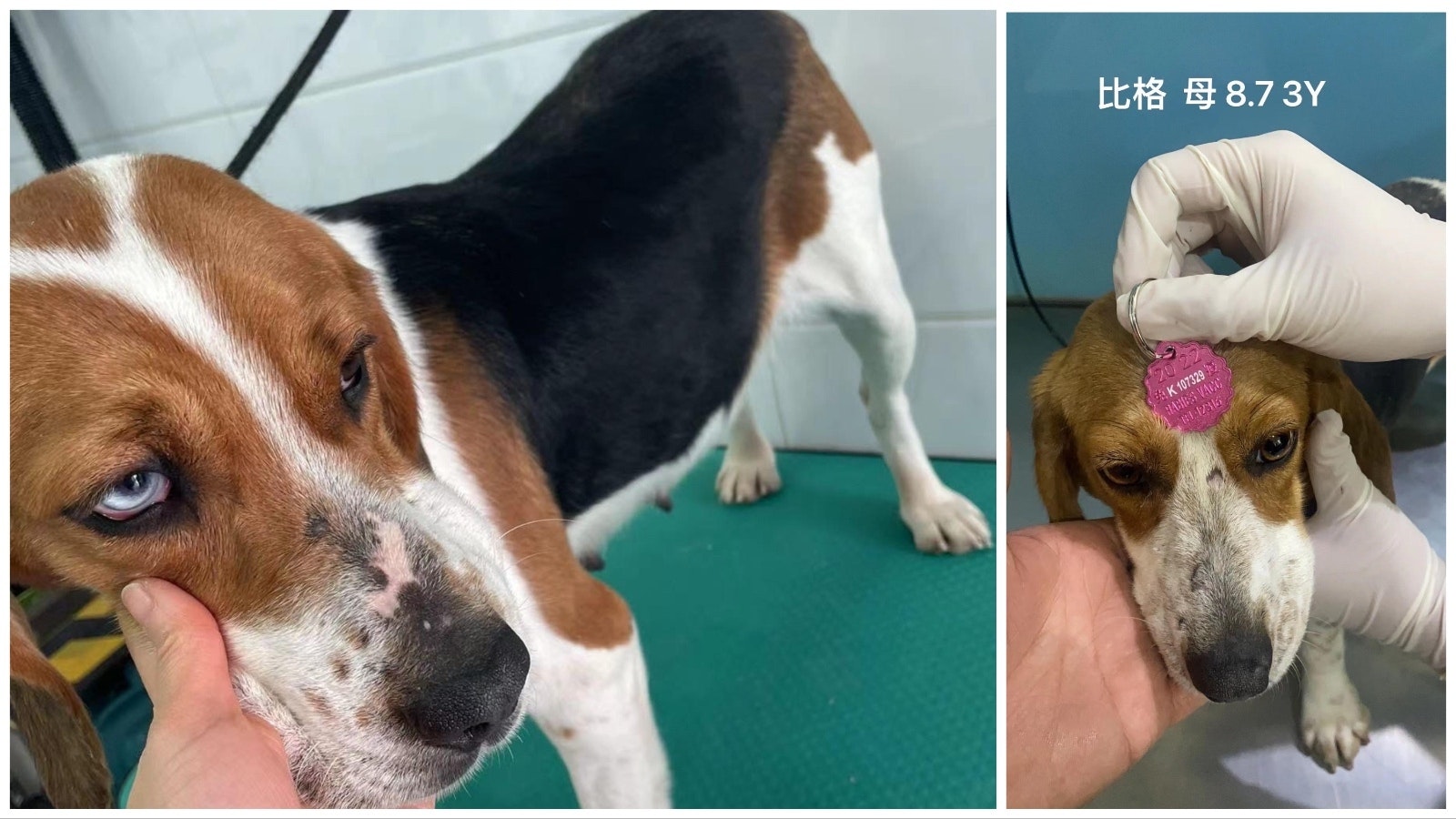The Fourth of July was Independence Day for four beagles that gained their freedom after being rescued by a Wyoming animal sanctuary from the underground Chinese meat trade.
The pups were former research animals that had been sold after their trials to the illegal meat market.
It was eye opening for John Ramer, executive director for Kindness Ranch, who immediately bolted into action to try to save the animals. Ramer was in Los Angeles waiting to pick up the beagles from the airport early Tuesday morning.
The Kindness Ranch, a 1,000-acre animal sanctuary near Hartville in the southeastern corner of the state, specializes in such rescues. The Kindness Ranch is the only refuge of its kind in the country that only takes animals that were used in medical testing or clinical trials, from beagles to cats to horses and pigs, among other animals.
‘Compels Us To Take Immediate Action’
In the past year, Ramer has made a name for himself in large-scale national beagle rescue operations, the most recent from a puppy mill in Virginia from which Ramer helped save more than 150 beagles slated for clinical and medical testing.
This is his first international rescue.
Every day, Ramer said he gets phone calls from people seeking help for animals in need, and he can’t always spring into action.
“While we do our best to assist within our resources and connections, we face limitations,” he said. “However, there are certain moments when we come across a story that compels us to take immediate action, regardless of the cost.”
The four beagles in this save are part of a larger rescue operation of mixed-breed dogs scheduled for slaughter in the illegal Chinese meat trade.
China Tests The Most Animals
China leads the world in animal testing, including dogs, with an estimated 20.5 million animals used each year, according to the animal rights nonprofit Cruelty Free International.
Beagles are the most common dog used in medical trials and clinical testing due to their relatively small size and submissive nature. They are also known to be affectionate and obedient, which makes them favorable for testing, Ramer noted.
In many countries, including the United States, lab animals are euthanized after their clinical trials unless saved by Ramer’s group and other nonprofits.
Unlike Western countries, animal welfare is not heavily regulated in China, Ramer noted. However, the country has clear laws against the consumption of dog and cat meat in the meat trade.
The Meat Trade
“The fate of these poor dogs after research is incredibly limited,” Ramer said. “Many of them are illegally obtained and sold into the meat trade, where an estimated 10 million dogs and 4 million cats are consumed annually.”
These four pups, however, have been given a second life where they will return to Wyoming to be rehabilitated, and maybe eventually adopted out like other animals on the Kindness Ranch.
The cost of this operation is expensive, Ramer said, with an estimated price tag of $20,000 for vet fees, transportation and other costs.
“To make this rescue possible, we need our community to come together,” Ramer said. “It is heartwarming to witness Kindness Ranch forging alliances across the globe.”
In the meantime, Ramer is eager to get the dogs back to Wyoming where they can begin the healing process.





